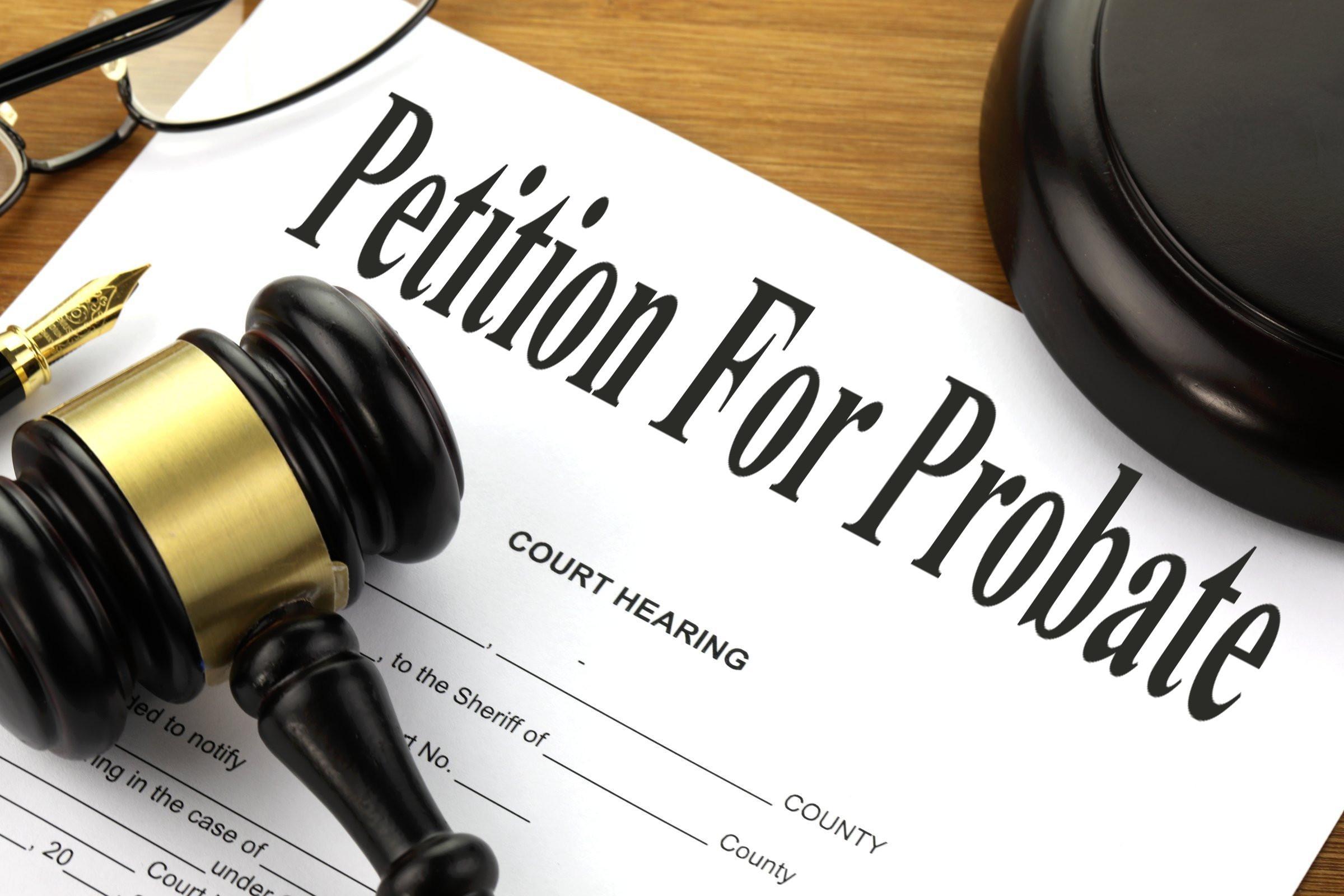Dealing with legal matters after the passing of a loved one can feel overwhelming. An important question that often arises is whether the deceased’s will must go through the process of probate. The factors surrounding this process can impact the distribution of assets in the will, and understanding them is essential during this challenging time.
Comprehending Probate and Wills
When someone passes away and leaves a will behind, determining whether it needs to undergo probate is a common concern. The necessity of probate depends on various factors, including the estate’s size, the types of assets involved, and the state’s laws in which the deceased resided.
- Size of the Estate: If the estate is small and falls below a certain value, it may be possible to avoid probate.
- Type of Assets: Assets such as life insurance policies with designated beneficiaries or assets held in trust typically do not need to go through probate.
- State Laws: Each state has its own laws regarding probate, so it’s crucial to seek legal advice specific to the state’s requirements.
Ultimately, the decision of whether a will needs to go through probate depends on the specific circumstances of the estate. Seeking guidance from a legal professional is recommended to ensure that the process is handled accurately and efficiently.
Influential Factors on Probate Requirements
Probate requirements can be influenced by a variety of factors, making the process of asset distribution after someone passes away more complex. Some key factors include state laws, asset types, and beneficiary designations. Understanding these factors is crucial to determine whether probate is necessary.
Considering these factors can help individuals and families navigate the probate process effectively, ensuring that the deceased’s assets are distributed according to their wishes.
Estate Planning to Avoid Probate
While wills typically go through probate, proper estate planning strategies can help avoid it and ensure the distribution of assets according to the deceased’s wishes. Setting up a living trust or designating beneficiaries on retirement accounts and life insurance policies are effective ways to bypass the probate process.
The Role of Legal Professionals in Probate Processes
Legal professionals play a crucial role in guiding individuals and families through the probate process when a loved one passes away. Their role may include assisting with the validation of the will, identifying and inventorying the deceased’s assets, handling outstanding debts or taxes owed by the estate, and distributing assets to beneficiaries according to the terms of the will.
Legal professionals provide valuable expertise and guidance throughout the probate process, ensuring that everything is handled correctly and complies with state laws.
Conclusion
While the probate process can be complex and time-consuming, it is often necessary to ensure that a deceased individual’s assets are distributed according to their wishes. Consulting with a qualified legal professional can help navigate the intricacies of probate and ensure that the estate is handled in accordance with the deceased’s wishes. Proper planning now can help avoid confusion and disputes later on.

Why Wills Must Undergo Probate: Essential Facts You Need to Know
Probate is a legal process that involves proving the validity of a will in court. It is an essential step in the administration of a deceased person’s estate and involves identifying and gathering the decedent’s assets, paying debts and taxes, and distributing the remaining assets to the rightful heirs. While the probate process can seem daunting, it is a necessary step to ensure that the deceased’s final wishes are honored and that their estate is handled in a fair and orderly manner.
Understanding the Importance of Probate for Wills
Probate serves several crucial purposes in the administration of a deceased person’s estate, including:
- Validating the Will: Probate establishes the legal validity of the deceased person’s will, ensuring that it is the authentic and final expression of their wishes regarding the distribution of their assets.
- Protecting the Rights of Creditors and Beneficiaries: The probate process provides a forum for resolving any claims against the estate, ensuring that creditors are paid and that the remaining assets are distributed to the rightful beneficiaries.
- Transferring Legal Title to Assets: Through the probate process, legal title to the decedent’s assets is transferred to the beneficiaries, providing a clear and undisputed framework for the transfer of property.
Essential Facts You Need to Know about Probate
When it comes to the probate process for wills, there are several essential facts that individuals should be aware of:
| Fact | Description |
|---|---|
| Probate is Required for Most Wills | In most cases, wills must undergo the probate process to ensure their validity and to facilitate the transfer of assets to beneficiaries. |
| Probate Can Be Time-Consuming | The probate process can be lengthy, often taking several months to complete, which can delay the distribution of assets to beneficiaries. |
| Probate Can Incur Costs and Fees | The probate process may involve court fees, attorney fees, and other administrative expenses, which can impact the overall value of the estate. |
| Assets Subject to Probate | Not all assets are subject to probate. Assets held in joint tenancy, living trusts, or with designated beneficiaries may bypass the probate process. |
Practical Tips for Navigating the Probate Process
While the probate process can be complex, there are practical tips that can help streamline the process and minimize potential challenges:
- Engage the Services of an Experienced Probate Attorney: A knowledgeable probate attorney can provide invaluable guidance and support throughout the probate process, ensuring that all legal requirements are met and potential issues are addressed.
- Maintain Detailed Records: Keeping thorough records of the decedent’s assets, debts, and estate administration activities can facilitate the probate process and help prevent disputes among heirs.
- Communicate Effectively with Heirs and Beneficiaries: Open and transparent communication with heirs and beneficiaries can help manage expectations and promote a smoother probate process.
Benefits of Probate and Practical Tips for Executors
While the probate process may seem daunting, it offers several benefits, including:
- Clearing Title to Real Estate: Probate can provide a clear and marketable title to real estate, making it easier to transfer or sell the property.
- Resolving Disputes: Probate provides a forum for resolving disputes among heirs and beneficiaries, ensuring that the estate administration proceeds fairly and efficiently.
For executors navigating the probate process, practical tips include:
- Seeking Professional Guidance: Executors should enlist the support of experienced professionals, such as probate attorneys and accountants, to ensure that all legal and financial aspects of estate administration are handled effectively.
- Adhering to Legal Requirements: Executors should diligently adhere to the legal requirements of the probate process, including filing necessary documents and complying with court orders.
Case Studies: First-Hand Experience with Probate
To gain a deeper understanding of the probate process, it can be helpful to explore real-life case studies and experiences from individuals who have navigated the process:
John and Mary, a married couple with three children, recently faced the probate process after John’s unexpected passing. Despite having a comprehensive estate plan, including a will and a trust, a portion of John’s assets still required probate. With the guidance of a skilled probate attorney, Mary was able to successfully navigate the process, ensuring a smooth transition of assets to the beneficiaries while fulfilling John’s wishes.
By sharing real-life experiences, individuals can gain valuable insights into the probate process and learn from the challenges and successes of others.
Conclusion
While the probate process may seem complex, understanding its importance and essential facts is crucial for all individuals involved in estate planning and administration. By navigating the probate process with knowledge and practical tips, individuals can ensure the fair and efficient distribution of assets, honoring the wishes of the deceased and providing peace of mind for their loved ones.


